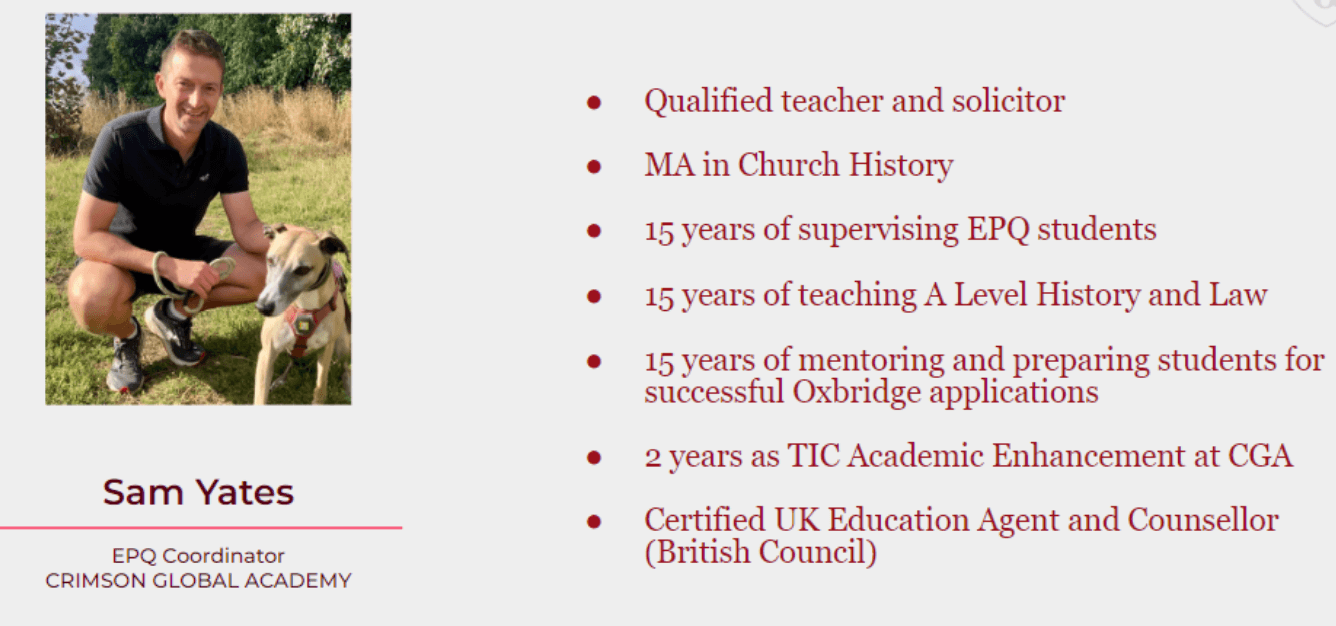CGA Community News: December
Read now/f/90801/1920x600/27d4787c06/day-8-vietnam-2.png)
/f/90801/1920x600/60eceff927/super-curricular-banner.png)
“Extra-curricular activities are those outside of your chosen topic, and unrelated to your studies, whereas super-curricular activities take the subjects you study further, beyond what you have learnt at school.” Cambridge University Website
Opportunity knocks
For students thinking about applying to study at the highest tariff and most competitive universities in the UK in 2024, it is particularly important to understand and appreciate this difference between super-curricular and extra-curricular activities. As iAS students finish their external examinations and return to the virtual CGA classroom to begin preparatory work for their A2 examinations, they need to be aware that admissions tutors will be looking for what they can offer above and beyond examined qualifications.
The good news is that there is a final window of opportunity between June and September for these students to add depth and breadth to subject knowledge and to build a portfolio of super-curricular experiences and achievements to add the required ‘sparkle’ to a potentially strong and successful aspirational application.
Tell me more!
With changes being made to the way in which teachers and advisers write UCAS references for students applying for undergraduate study in the UK, it is becoming more important that all students (not just those with Oxbridge aspirations) take the opportunity to build a super-curricular portfolio. The infographic below outlines the prescribed formula for the UCAS reference.
Previously, teachers and advisers could be quite creative with the way in which the third section was written to exaggerate the strengths and mask weaknesses of the less dedicated student. It is clear that the new format requires more of a bullet-point approach to listing objective evidence and examples of relevant academic achievements and super-curricular engagement.


Where should I start?
The advice and links provided by Cambridge University, including their HE+ site, is a great place to start. Students are also encouraged to join the super-curricular conversation within CGA - they can do this by joining the #academic-extension channel in Slack.
We recently used this channel to launch and promote the new CGA essay competition (using the questions from Oxplore). Why not get involved by choosing a question and submitting an essay? Students, parents and guardians are also reminded that the EPQ programme run by CGA provides a fantastic opportunity to demonstrate meaningful and sustained engagement with super-curricular learning and thinking.
We will let the experts on the ‘other side of the fence’ have the final words on the matter:
We’re not looking for people who can memorise lots of facts – instead, we want to see that you can think critically by finding connections, reflecting on and even challenging what you’ve read and watched.
If you’re finding the super-curricular activities boring then that might be a sign that you haven’t found the subject that’s right for you – don’t worry, just try something else.



